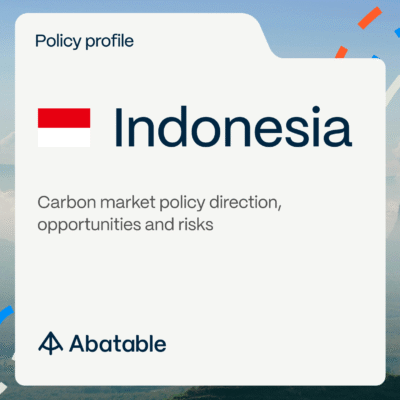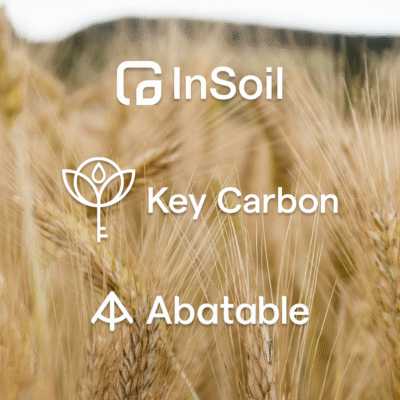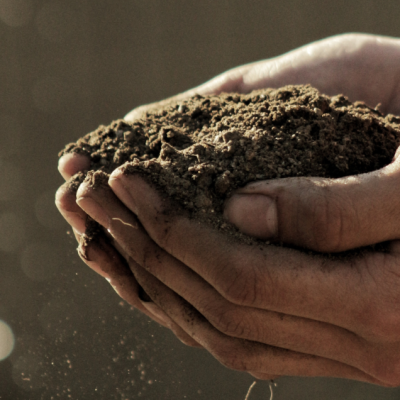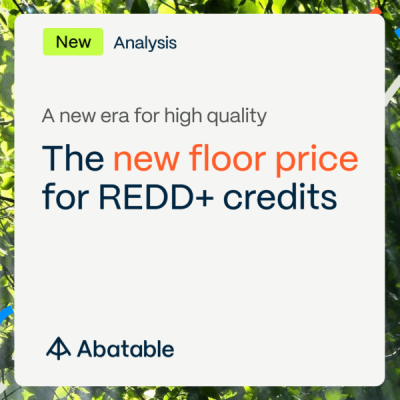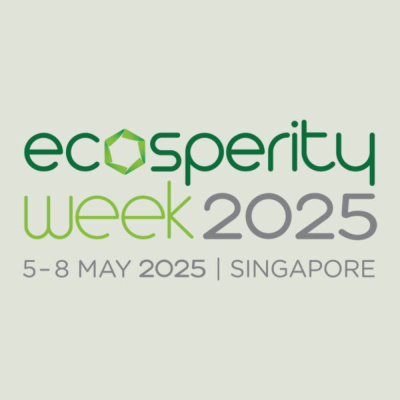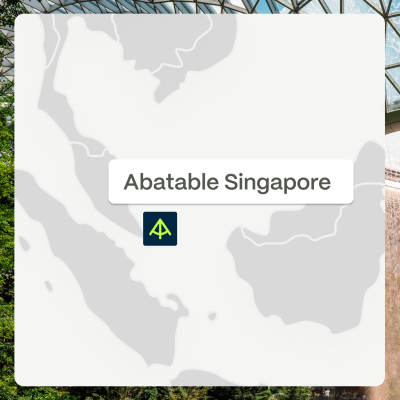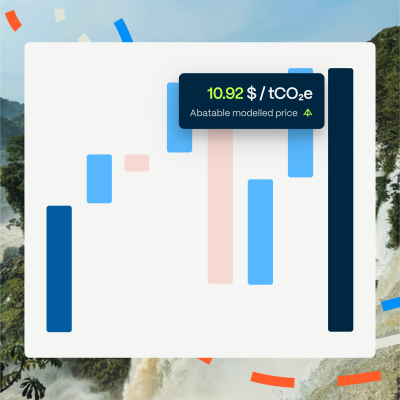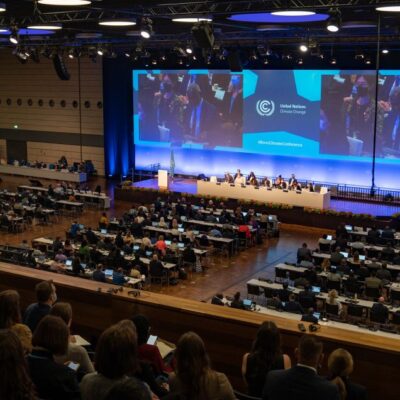In the next article in our series exploring the high-impact carbon projects sourced by Abatable for the Olympic and Paralympic Games Paris 2024, we focus on the Chyulu Hills REDD+ Project in Kenya. Selected for its transformative impact on both the environment and local communities, this project exemplifies how carbon initiatives can deliver wide-ranging benefits while mitigating climate change.
The Chyulu Hills REDD+ Project (VCS ID1408) was launched in 2013 in the Tsavo-Amboseli ecosystem of southeastern Kenya, around 150 km south of Nairobi. A stunning volcanic mountain range, the Chyulu Hills are the main geographical feature of the region, playing a critical role in Kenya’s ecology and lending the project their name.
The project area is rich in biodiversity thanks to the wide variety of ecosystems within the region, including mountain cloud forests and grassy savannahs. Many unique and rare animals call these landscapes home, including the ‘big five’ – lions, leopards, African buffalos, elephants and rhinos – including increasingly threatened populations of African elephants and endangered black rhinos. This wildlife has coexisted with traditional communities such as the Maasai for generations.
These hills also provide numerous fundamental ecosystem services. For example, they serve as an essential water reservoir at the local and regional levels. They contain a valuable aquifer that supplies water to the coastal city of Mombasa and much of the surrounding landscape.
However, this emblematic East African landscape is under severe threat. Over the years, agricultural expansion, charcoal production and the collection of wood for cultural artefacts have led to alarming deforestation. Unplanned agricultural encroachment, pasture degradation, fires, climate change and water abstraction are also putting this fragile ecosystem under enormous pressure.
Without adequate funding for intervention, the forests of Chyulu Hills would continue to degrade, threatening irreplaceable wildlife, the livelihoods of local populations, and global stocks of ‘irretrievable carbon’. Irretrievable carbon refers to the vast reserves of carbon stored in nature that risk being released by human activity and, if lost, cannot be replenished by 2050.
How the project works
The Chyulu Hills REDD+ Project was designed as a comprehensive REDD+ initiative (Reducing Emissions from Deforestation and forest Degradation) to reverse the tide of deforestation while delivering critical social and environmental benefits. It protects the area’s vital ecosystems and carbon stocks whilst providing much-needed benefits for local people including through job creation, educational initiatives, inclusion and actions in favour of women.
Chyulu Hills is one of the largest REDD+ projects in the region, spanning over 410,000 hectares (one million acres) of threatened forestland across three counties: Makueni County to the north and east, Taita-Taveta County to the south, and Kajiado County to the west.
Throughout its 30-year lifespan, the Chyulu Hills REDD+ Project operates through three core components:
- Ranger surveillance and anti-poaching efforts. The project employs local rangers to monitor the forest, patrol for illegal activities and remove poaching traps and snares. Since its inception, rangers have removed over 641 poaching devices, directly protecting local wildlife, including 15 endangered species. Ranger training has also included fire control measures to prevent catastrophic wildfires that could destroy both forest ecosystems and carbon stocks.
- Fire control and prevention. One of the key threats to the forest is uncontrolled wildfires. The project has trained 348 rangers in firefighting and fire prevention techniques to reduce the likelihood of forest fires, which can cause long-term damage to the forest’s ability to act as a carbon sink and risk harm to the local population.
- Reforestation and ecological restoration. The project focuses on replanting trees and restoring deforested areas. To date, over 11,000 tree seedlings have been planted, contributing to the long-term sustainability and ecological health of the forest. The project is also rehabilitating a community nursery that currently generates 200,000 seedling per year and aims to scale to one million seedlings yearly.
Design and governance
The Chyulu Hills REDD+ Project, supported by Paris 2024, is structured to ensure that both conservation and local community development goals are met through a highly participatory and transparent governance system. It is managed by the Chyulu Hills Conservation Trust (CHCT), a group made up of a diverse range of stakeholders to ensure local community representation and strong oversight.
The governance structure consists of four Indigenous groups, including the Maasai, three NGOs and two government agencies. Involving local Indigenous communities in the governance of the project not only ensures that the project benefits from local knowledge and expertise but also guarantees that the communities’ needs are met. The Maasai leader chairs the CHCT, ensuring that the allocation of carbon revenues and other project-related income is decided with full local involvement.
A standout feature of the project is its efficient use of carbon revenues – approximately 90% of revenues are directly reinvested in field activities, including forest protection, biodiversity preservation and ecological restoration; supporting local communities through school bursaries and healthcare and reducing the environmental impact of livestock farming.
The remaining 10% is used to cover project support costs. This structure ensures that the vast majority of funds directly benefit conservation efforts and local communities.
Certification and standards
The Chyulu Hills REDD+ Project adheres to internationally recognised standards, ensuring its credibility and effectiveness:
- Verified Carbon Standard (VCS), to ensure the greenhouse gas emissions reductions generated by the project are real, measurable, and additional.
- Climate, Community, and Biodiversity Standards (CCB), to ensure that the project delivers not only climate benefits but also contributes to biodiversity conservation and generates positive outcomes for local communities. In fact, triple gold CCB certification was achieved, meaning the project delivers exceptional benefits reaching the optional targets and goals set out in the standard.
Audits are conducted by independent third parties to verify compliance with these standards, further ensuring transparency and accountability in the project’s operations. These audits assess both VCS and CCB standards.
By embedding community governance, maintaining strict financial transparency and adhering to high international standards, the Chyulu Hills REDD+ Project sets an example for future conservation and carbon market projects.
Quantified impacts on climate, nature and people
- Climate: To date, the Chyulu Hills REDD+ Project has avoided the emission of 5.17 million tonnes of CO2. By protecting 410,534 hectares of forest threatened by deforestation, it helps maintain vital carbon stocks, preserving irrecoverable carbon that would otherwise be lost to deforestation.
- Nature: The project is a lifeline for wildlife, safeguarding 15 endangered species and removing over 641 poaching traps and snares. Its reforestation efforts have already planted 11,000 tree seedlings, helping to restore degraded areas. Chyulu Hills also protects a wildlife corridor between two national parks, preserving an important migration path and habitat for endangered species. Furthermore, by safeguarding the region’s watershed, the project secures water resources for people and wildlife across southeastern Kenya.
- People: Chyulu Hills is more than an environmental project; it’s a vehicle for social change. Over 450 local jobs have been created, contributing to economic development in the region. Project-related activities have given over 1,297 women financial independence and more than 600 girls have received durable menstrual kits. The project also works to improve access to education, financing more than 2,500 scholarships and supporting 94 schools with a total of 35,000 students with a food programme. Part of the income from carbon credits contributes to improving the living conditions of the residents, focused on water supply and school facilities, and 26 new infrastructures have been built to date.
Testimonials from the field
According to Samson Parashina, Maasai leader and Chairman of the Chyulu Hills Conservation Trust: ‘Purchasing carbon credits from the Chyulu Hills REDD+ Project is an investment in the future of our communities. The Maasai strongly support this initiative as it helps build our local economy by protecting the natural environment and maintaining our cultural link to the land. [Carbon market] support allows us to safeguard forests, protect endangered species, promising a better future for generations to come, and cements our shared conservation agenda.’
Agnes Nailantei, a field communications officer for the Chyulu Hills REDD+ Project and a Maasai community member, drew a parallel between the Olympics and global climate efforts: ‘Just like in the Olympics, where nations come together to compete for a common goal, REDD+ projects unite the world in a global race against climate change. With strong participation, it can be our gold medal solution’.
A model for future climate action
The Chyulu Hills REDD+ Project is a powerful example of how Abatable helps organisations find the right high-impact carbon projects that create meaningful, long-term change. By addressing both environmental and social issues, Chyulu Hills demonstrates that climate action can go hand-in-hand with economic development and community empowerment. Businesses and organisations can contribute to this global effort by investing in such projects through platforms like Abatable, supporting their climate strategies while fostering sustainability and equity on the ground.
If you are seeking to support similar projects and start building a thriving future for climate, nature and people, contact Abatable today.
Written by climate and energy writer Charlie Bush.




